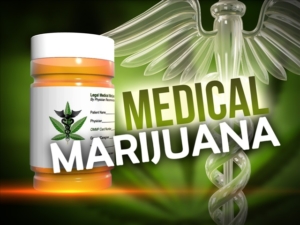Due to Federal Law, VA Won’t Research Effects of Marijuana on PTSD and Chronic Pain

By Debbie Gregory.
Due to federal restrictions, the Department of Veterans Affairs will not conduct research on the effectiveness of medical cannabis on post-traumatic stress disorder and chronic pain.
Although doing so would not be illegal, there would be a lot of red tape to cut through.
The announcement is a huge setback for those who have advocated for medical cannabis to be a potential alternative to narcotic and opioid-heavy treatment plans that many VA patients are enrolled in.
There is a plethora of scientific research establishing medical marijuana as a safe and effective alternative to pharmaceuticals. Perhaps that has contributed to the majority of Americans supporting the legalization of cannabis for medicinal purposes.
Included in that majority are U.S. military veterans and veteran caregivers. According to a recent American Legion poll, 82% of respondents supported the legalization of medical cannabis, and 92% supported expanding research into the medical benefits of the drug.
Additionally, a number of veterans organizations have been pushing for research into the drug as a possible treatment option for many of the ailments that affect veterans, most notably PTSD and chronic pain.
Twenty-nine states, plus the District of Columbia, Puerto Rico, and Guam have legalized medical cannabis programs
The news that the VA will not conduct research into medical cannabis comes just after the department broadened its guidelines for patients to openly discuss their cannabis use with VA physicians. While it is unlawful for VA doctors to prescribe marijuana as it is a Schedule 1 substance, in states where medical marijuana is legal, VA providers are allowed to discuss marijuana use with veterans and adjust treatment plans as necessary.
Military Connection salutes and proudly serves veterans and service members in the Army, Navy, Air Force, Marines, Coast Guard, Guard and Reserve, and their families.

















